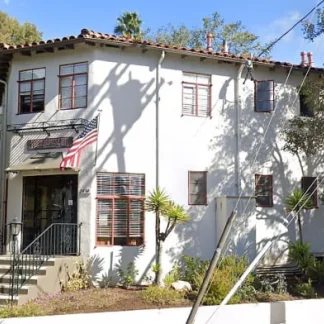Full Spectrum Recovery & Counseling
Full Spectrum Recovery & Counseling is an outpatient treatment dedicated to ...
Located in Santa Barbara, California, New House III is a drug and alcohol rehab that supports adult men with substance use disorders. New House III also provides supportive resources, such as referrals, mental health services, and transitional living.
Services at New House III include counseling, peer support, and a residential sober living program.
New House III provides a structured recovery residence for men in early recovery. The program is staffed entirely by clients with personal experiences of recovery. Clients may also attend outside treatment programs while living at New House III.
Residents are required to attend regular 12-Step meetings, comply with house rules, secure employment, and take part in household chores. Participants may also be required to participate in random drug screenings to ensure compliance with the house rules.
New House III offers programs for men over 18. Residents may stay for six to 12 months, after which they may apply to the Grad House.
The fellowship of Alcoholics Anonymous is a 12-Step program of recovery that helps adults overcome alcohol use disorder and substance use disorders. This program involves attending recovery meetings, supporting one another through sharing personal experiences, working through the 12-Step program with a sponsor, and being of service to others in need. Anyone can attend. The only requirement is a desire to stop drinking. Meetings are available throughout the day, seven days per week.
Contact us for more information: (805) 563-6050

Connect with New House III by calling their admissions team directly.
(805) 563-6050 Website Get DirectionsIn individual therapy, a patient meets one-on-one with a trained psychologist or counselor. Therapy is a pivotal part of effective substance abuse treatment, as it often covers root causes of addiction, including challenges faced by the patient in their social, family, and work/school life.
Life skills trainings involve all the skills a person must have in order to function successfully in the world. These include time management, career guidance, money management, and effective communication. Truly successful addiction recovery is based on the ability to not only live substance-free, but to thrive. Life skills teaches the practical necessities of functioning in society, which sets clients up for success in life, and therefore sobriety.
Life skills trainings involve all the skills a person must have in order to function successfully in the world. These include time management, career guidance, money management, and effective communication. Truly successful addiction recovery is based on the ability to not only live substance-free, but to thrive. Life skills teaches the practical necessities of functioning in society, which sets clients up for success in life, and therefore sobriety.
Full Spectrum Recovery & Counseling is an outpatient treatment dedicated to ...
Casa Serena - Castillo Street (also known as the Graduate House) is a private su...
AA – Alcoholics Anonymous – Central Office is a non-profit rehab located in Sant...
SOS Sober Living for Women is a private sober living facility in Santa Barbara, ...